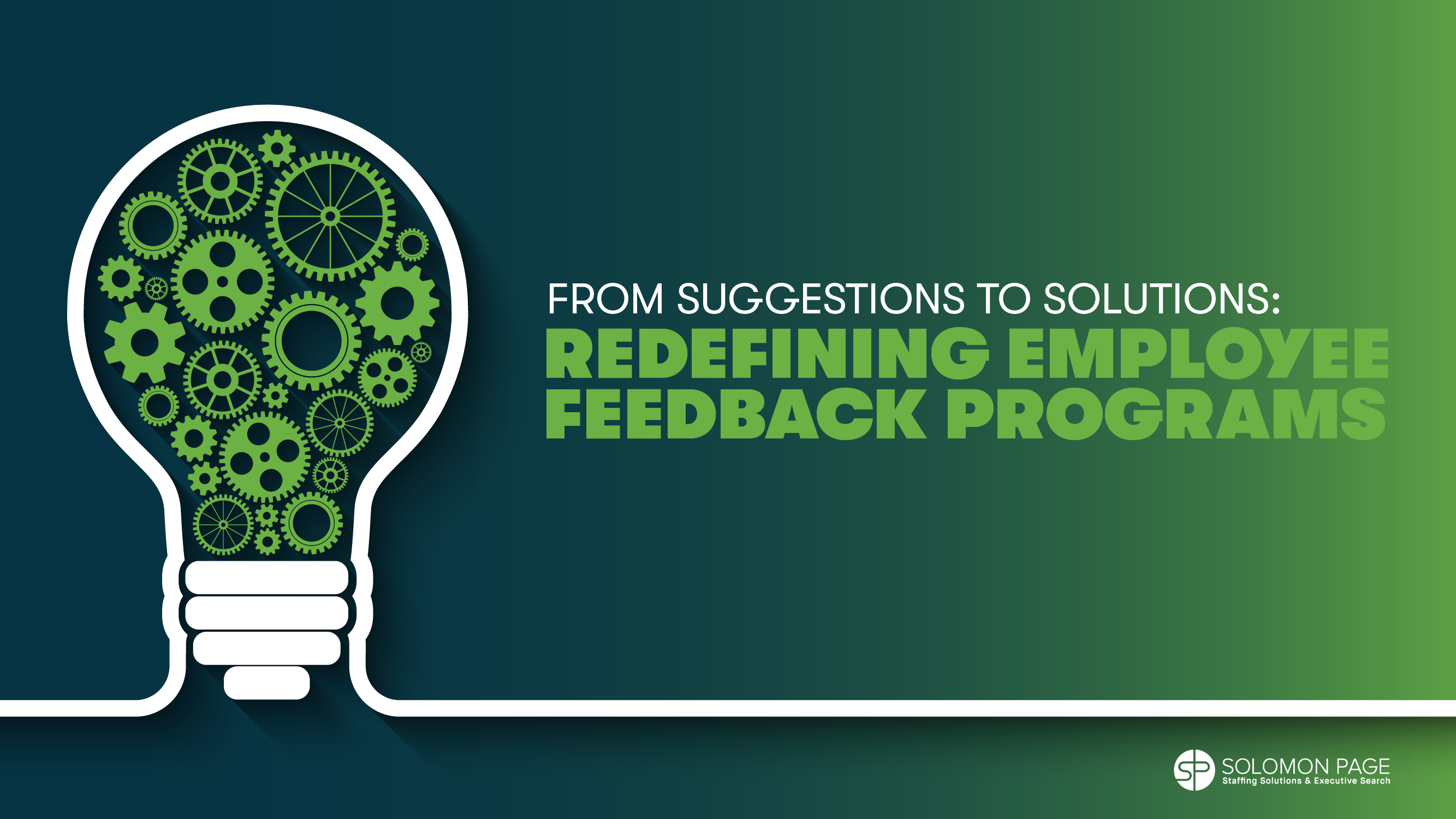
By Erica Schaumberg
In our rapidly evolving workplace, forging authentic connections with both team members and leaders has become more vital than ever – people are the heart of every organization. Companies are constantly redefining their collective identity as they evolve. Establishing a positive work environment based on trust and respect, that also values employees, is key as this foundation sets the stage for open discussions, consistent growth, and constructive feedback.
In a world of boundless technological innovation and widespread global teams, the traditional suggestion box feels outdated. People thrive when they are listened to and respected, regardless of where they are. It is the responsibility of leadership to foster an environment where individuals can freely express their thoughts and opinions in an open and sincere environment. In doing so, leaders can establish a culture of inclusivity and collaboration within their organization.
So, how do you unite an organization while celebrating the uniqueness of a global team?
The key is promoting consistent communication and an inclusive culture. This dynamic framework for leaders allows employees to share valuable insights on their own terms, shaping our modern workplace culture. As leaders, whether revitalizing your approach or starting from scratch, tailor your company’s employee feedback program to fit your needs:
Start with goal setting. Before seeking feedback, clarify your intentions. Are you seeking different perspectives for specific policies and processes, or aiming to improve work-life balance? Craft thoughtful questions for your team, providing precise and relevant information. Transparent goals will empower your team with accurate information to make informed choices.
Empower through openness. Strive for full transparency, ensuring employees understand the intentions and implementation process of each policy or assignment. The more details employees understand, the better the outcome. In today’s work environment, communication accessibility is crucial. Recognize that remote, hybrid, and onsite work schedules require different communication methods. Feedback programs require patience and time, yet prioritizing listening to employees is crucial for understanding their perspective and experiences. Maintaining an open door of communication creates a culture that empowers employees to feel heard and valued, while also promoting positive practices.
Create a cross-functional committee. Establishing credibility for your new goals rests on the involvement of respected leadership. Without a designated advocate, there is a risk of causing confusion and lack of motivation. Bringing together a diverse group from various departments creates an effective program that mirrors the dynamic work environment. The most effective programs originate from cross-functional committees. Multiple viewpoints enrich the collective.
Value individual voices. Consider employee perspectives. How will their ideas enhance workplace improvements? People want to feel validated for their contributions – consider perks like Summer Fridays or extra remote days. For remote-heavy workplaces, consider hosting unifying events. While money is valued, honoring voices is crucial. Be creative in rewarding employees for sharing valuable insights.
Be Realistic. Complicated processes can be hard to start and maintain. Know your limits in creating a sustainable feedback program. Do you have someone to review responses consistently? What's the strategy for implementation? Avoid overwhelming employees with unrealistic demands. Effective programs should be manageable and flexible for both submitters and reviewers.
A thoughtfully designed feedback program goes beyond promoting a positive organizational mindset – it communicates to employees that they are vital to the company's culture and growth. Their voices, regardless of where they are located or their role, are significant for the organization's progress. Welcoming input from individuals must be paired with leadership support to ensure that the feedback program is not merely a formality, but a genuine platform for employees to actively contribute to their organization’s success. In today's intricate workforce, sustaining a meaningful feedback program and commitment to the company is essential. People seek empowerment and a feeling of belonging within a company culture that they can genuinely connect with on both professional and personal levels.



